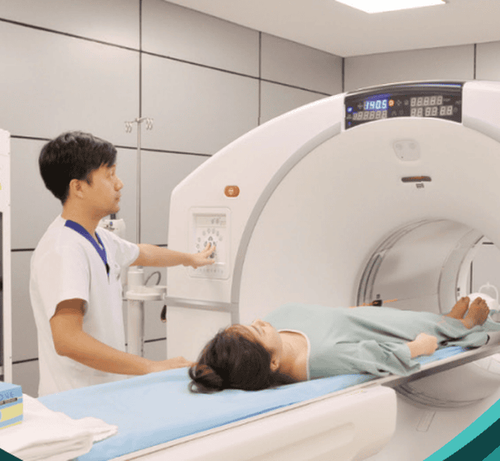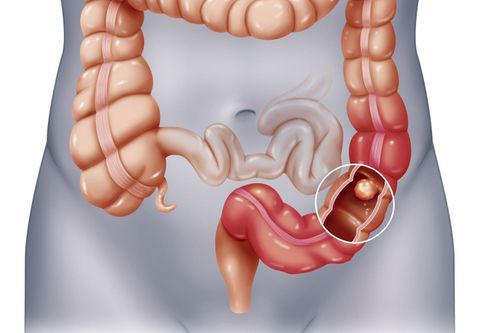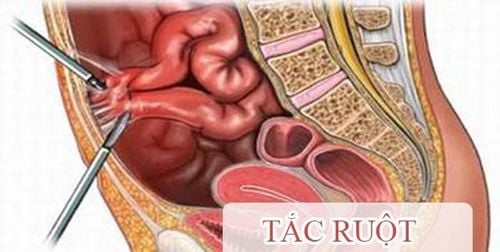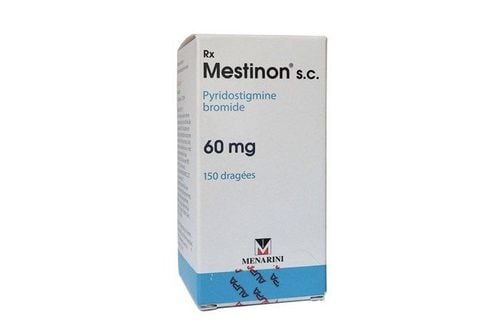This is an automatically translated article.
The article is professionally consulted by Master, Doctor Nguyen Ngoc Thang - Gastroenterologist - General Surgery Department - Vinmec Danang International General Hospital.In abdominal emergency, intestinal obstruction is one of the most common emergencies, second only to appendicitis. Medically, intestinal obstruction is actually a syndrome caused by stopping the circulation of gas and digestive juices in the intestinal lumen, the causes of intestinal obstruction are many.
1. What is an intestinal obstruction?
Intestinal obstruction is a condition in which the patient's body stops the flow of gas and digestive juices in the intestinal lumen. In the case of patients with intestinal obstruction due to mechanical obstructions located from the angle of Treitz (first part of the small intestine) to the anus, it is called mechanical intestinal obstruction. If the bowel obstruction is caused by the cessation of bowel motility, it is called functional bowel obstruction or paralytic ileus.When intestinal obstruction, patients often present with systemic or local disorders depending on the acute level, which varies depending on the mechanism of obstruction (mechanical intestinal obstruction and functional intestinal obstruction), the location of the obstruction in the intestinal tract. small intestine or colon. Therefore, any diagnosis of intestinal obstruction can be difficult even with modern diagnostic tools.
2. Common types of bowel obstruction
Bowel obstruction can occur at any age, gender, however, depending on the specific age, the cause of bowel obstruction is also different. To make it easier to treat, intestinal obstruction is divided into two broad categories:Mechanical intestinal obstruction: Patients with the disease due to mechanical obstructions located from the Treitz angle to the anus, this type accounts for about 95 - 97% of patients have the disease. Functional bowel obstruction: Also known as paralytic ileus, occurs because bowel movements stop working. This type accounts for about 3-5% of all patients with the disease. In addition, if classified according to the progression of the disease, it can be divided into:
Acute intestinal obstruction and subacute intestinal obstruction. Complete and incomplete bowel obstruction.

Bệnh tắc ruột có thể gặp phải ở bất kỳ độ tuổi, giới tính nào
3. Causes and mechanism of intestinal obstruction
There are many different causes that can cause intestinal obstruction in patients, specifically:Causes in the intestinal lumen, in the small intestine: It is possible that roundworms stick together to cause intestinal obstruction (common in Children, people who have a habit of eating raw and drinking cold water, in addition, patients can also be blocked by food residues (common in the elderly, patients with gastrectomy or pancreatic insufficiency, gallstones). )
Causes in the intestinal wall (both small intestine and colon): It may be due to the patient having cancerous tumors of the small intestine and colon or benign tumors of the intestinal wall with large size that can be large. cause intestinal obstruction (this is rare) Narrowing of the intestinal wall due to infection or intussusception ... can also be the cause of the patient's bowel obstruction
Causes outside the intestinal wall: It may be due to the cord ligaments and adhesions of intestinal loops, of which 80% are caused by patients who have had abdominal surgery, the rest are due to trauma, infection or congenital.
Intestinal obstruction due to intestinal paralysis: Also called is intestinal obstruction The cause may be due to the patient's reflex paralytic ileus in spinal trauma or peritonitis, gastric perforation, acute ischemia, and mesenteric vein thrombosis can also paralyze peristalsis in the intestinal segment. corresponding.
In addition, studies have also shown many other causes of neuromuscular damage of the intestine and cause a condition of intestinal pseudo-obstruction, including:
Metabolic disorders. Due to drug use. Intestinal damage in systemic diseases such as hypothyroidism, diabetes, scleroderma, porfirin metabolism disorders. Electrolyte imbalances, especially potassium and calcium Past intestinal trauma or trauma Have had irradiation in or near the abdomen Peripheral artery disease Rapid weight loss Crohn's disease Diverticulitis Septicemia.
4. Diagnostic techniques for intestinal obstruction

Hình ảnh CT scan giúp cung cấp hình ảnh chi tiết hơn để giúp các bác sĩ xác định đoạn ruột bị tắc
X-ray of bowel obstruction. CT scans provide more detailed images to help doctors identify the blocked bowel. Ultrasound is often used to identify intestinal obstruction in children. Barium contrast imaging. Endoscopic.
5. How is bowel obstruction treated?
Depending on the symptoms, causes and severity of bowel obstruction in the patient, the doctor will have appropriate treatment methods.For incomplete bowel obstruction, your doctor may suggest you eat less fiber to help make stools smaller and easier to pass. If this doesn't work, your doctor may recommend surgery.
In case the patient has a complete bowel obstruction, the doctor will apply an abdominal surgery to remove the blockage and the damaged part of the intestine.
Your doctor may prescribe medication to increase bowel movements and give fluids and electrolytes to avoid dehydration and electrolyte disturbances. Patients should consult their doctor before changing any prescription during treatment for intestinal obstruction.
Alternatively, the doctor may use colostomy (using a bag to help allow stool to pass out of the abdomen) or nasogastric suction (using a tube inserted through the nose and into the person's stomach). disease to lead digestive fluids out, help relieve pain and relieve abdominal pressure) and rectal decompression to help relieve pressure for the patient. In parallel with the treatment of intestinal obstruction, the patient needs to build healthy living habits with adequate nutrition, reasonable rest to quickly recover health.
Patients with intestinal obstruction can go to Vinmec International General Hospital for timely examination and intervention. Vinmec has full technical facilities and qualifications to effectively implement methods of diagnosis and treatment of intestinal obstruction. In particular, there is a team of well-trained and experienced gastroenterology specialists; Professional medical service quality will bring the most satisfaction and peace of mind to patients.
Master. Doctor Nguyen Ngoc Thang has 17 years of experience in the field of gastrointestinal and hepatobiliary surgery, and over 9 years of endoscopic interventional experience, especially the technique of endoscopic retrograde cholangiopancreatography. ERCP) with over 800 cases.
Please dial HOTLINE for more information or register for an appointment HERE. Download MyVinmec app to make appointments faster and to manage your bookings easily.













